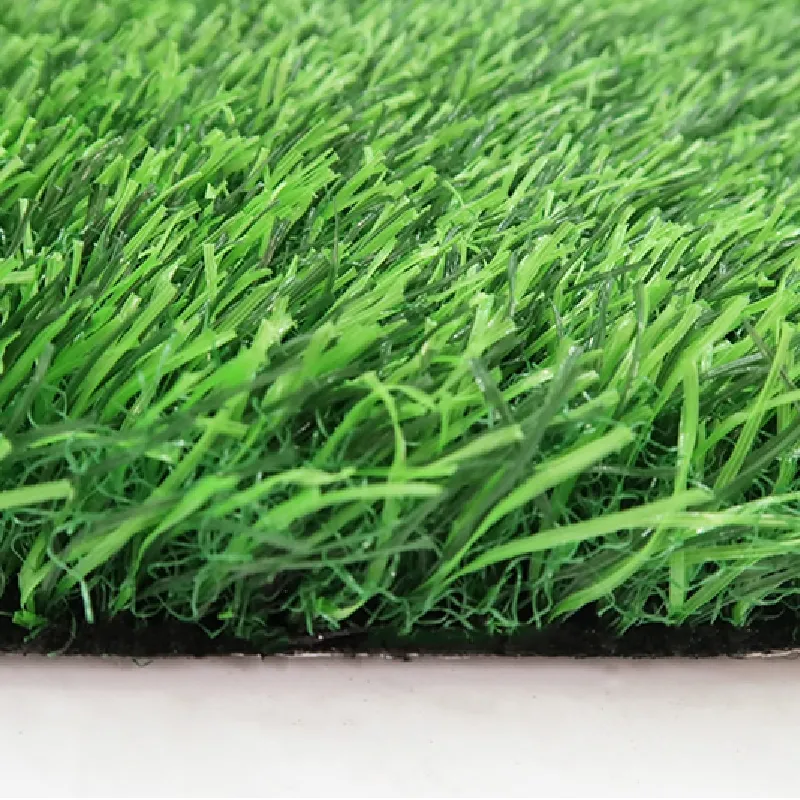
- Afrikaans
- Arabic
- Belarusian
- Bengali
- Czech
- Danish
- Dutch
- English
- Esperanto
- Estonian
- Finnish
- French
- German
- Greek
- Hindi
- Hungarian
- Icelandic
- Indonesian
- irish
- Italian
- Japanese
- kazakh
- Rwandese
- Korean
- Kyrgyz
- Lao
- Latin
- Latvian
- Malay
- Mongolian
- Myanmar
- Norwegian
- Persian
- Polish
- Portuguese
- Romanian
- Russian
- Serbian
- Spanish
- Swedish
- Tagalog
- Tajik
- Thai
- Turkish
- Turkmen
- Ukrainian
- Urdu
- Uighur
- Uzbek
- Vietnamese
Sustainable Synthetic Turf Solutions for Eco-Conscious Landscaping and Outdoor Spaces
Oct . 11, 2024 17:54 Back to list
Eco-Friendly Artificial Grass A Sustainable Choice for Modern Landscapes
In recent years, the growing awareness of environmental issues has prompted a significant shift in how we approach landscaping. The quest for sustainable living has led many homeowners and businesses to explore alternative landscaping solutions that minimize environmental impact. Among these options, eco-friendly artificial grass has emerged as a popular and practical choice, offering both aesthetic appeal and ecological benefits.
What is Eco-Friendly Artificial Grass?
Eco-friendly artificial grass is designed to mimic the appearance and feel of natural grass while incorporating sustainable materials and technologies. Unlike traditional synthetic turf, which often consists of non-biodegradable plastics, eco-friendly variants utilize recycled or recyclable materials. These advancements minimize the ecological footprint associated with production and disposal, making them a preferable option for environmentally conscious consumers.
Benefits of Eco-Friendly Artificial Grass
1. Water Conservation One of the most significant advantages of eco-friendly artificial grass is its role in water conservation. Traditional lawns require regular watering, leading to high water consumption, especially in arid regions. By switching to artificial grass, homeowners can significantly reduce their water usage, which is essential in the face of ongoing droughts and water scarcity issues.
2. Pesticide and Fertilizer Reduction Maintaining a natural lawn often necessitates the use of chemical fertilizers and pesticides to keep the grass healthy and free from pests. These substances can leach into the soil and waterways, causing environmental harm. Artificial grass eliminates the need for these chemicals, creating a safer ecosystem for local flora and fauna.
3. Low Maintenance Requirements Eco-friendly artificial grass requires minimal maintenance compared to natural grass. It doesn’t need to be mowed, trimmed, or fertilized, saving time, effort, and resources. This reduced maintenance means fewer emissions produced by lawn care equipment, further enhancing its environmental benefits.
4. Durability and Longevity High-quality eco-friendly artificial grass is engineered to withstand various weather conditions, making it a durable choice that can last for many years. This longevity means fewer replacements and waste over time, contributing to a lower overall environmental impact.
eco friendly artificial grass

5. Aesthetic Versatility Modern eco-friendly artificial grass is available in various colors, textures, and lengths, allowing for creative landscaping solutions that can meet diverse aesthetic preferences. Whether for residential gardens, commercial properties, or recreational areas, artificial grass can enhance the beauty of any space.
The Production Process
The manufacturing of eco-friendly artificial grass involves several sustainable practices. Many brands focus on using recycled plastics, such as polyethylene and polypropylene, derived from post-consumer waste. These materials are processed and transformed into high-quality fibers that closely resemble natural grass. Moreover, the production lines often incorporate energy-efficient techniques to minimize carbon emissions, showcasing a commitment to sustainability from start to finish.
Addressing Common Myths
Despite the advantages of eco-friendly artificial grass, some misconceptions persist. A common myth is that artificial grass contributes to the urban heat island effect. However, advancements in technology have led to the development of products that reflect heat and stay cooler than older generations of synthetic turf. Furthermore, infill materials such as organic, non-toxic substances can enhance permeability and cooling effects.
Conclusion
Eco-friendly artificial grass represents a significant step forward in sustainable landscaping solutions. With its numerous environmental benefits, including water conservation, reduced reliance on chemicals, and low maintenance costs, it is an excellent alternative to traditional lawns. As our society continues to prioritize sustainability, adopting eco-friendly artificial grass can lead to greener landscapes that promote environmental health without sacrificing beauty or functionality.
By choosing eco-friendly artificial grass, homeowners and businesses can contribute to a more sustainable future, creating thriving spaces that align with the principles of ecological responsibility. As we continue to seek innovative solutions to our environmental challenges, the adoption of sustainable practices in landscaping will play a crucial role in fostering a healthier planet for generations to come.
-
The Benefits of Artificial Turf for Indoors
NewsJul.15,2025
-
How Artificial Grass Suppliers Ensure Quality Products
NewsJul.15,2025
-
Artificial Grass and Pets: A Space for Relaxation
NewsJul.08,2025
-
Balcony & Outdoor Decoration with Artificial Grass
NewsJul.08,2025
-
Best Indoor Artificial Grass for Home
NewsJul.07,2025
-
Best Pet Turf for Dogs: Safe & Durable Artificial Grass Options
NewsJul.07,2025
Products categories









